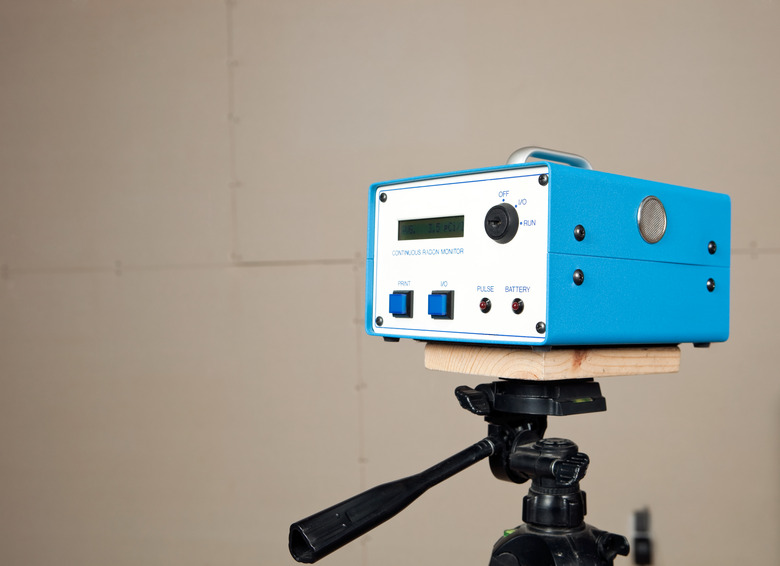Is Radon Testing A Scam?
We may receive a commission on purchases made from links.
Worried about radon mitigation scams? If a home is located in an area where radon is common, the home should be tested for the gas. Some experts even believe that homes without basements should be tested, as radon can seep through concrete slab foundations at any level.
If the presence of radon is detected in a property, and the levels are higher than what is considered safe, then radon mitigation efforts will be recommended. Just like anything else, a homeowner can be taken advantage of by a dishonest professional or fall prey to a radon mitigation scam, but radon testing itself is a reasonable and acceptable form of inspection. And, more important, radon testing can be one of the easiest ways to protect those who live in the home. According to the Centers for Disease Control and Prevention, following smoking, radon exposure is the second leading cause of lung cancer, making testing an important part of homeownership.
Tip
Radon testing is not a scam, but instead an important way to make sure that the radon levels inside the home don't reach unsafe levels. Increased amounts of radon can cause long-term, and even life-threatening, problems for homeowners.
What Is Radon?
What Is Radon?
Radiation is a natural part of the environment. All people receive exposure from naturally occurring radioactivity in soil, water, air and food. To limit its effect, it is helpful to know that the largest source of natural radiation exposure is from radon, exposure to which fortunately can be controlled.
Radon is a radioactive element formed by the disintegration of radium. It is the heaviest of the noble gases, and it builds up in the lowest levels of the house. It occurs naturally, especially in areas over granite, but can be found anywhere in areas where it is common. If vented to the outdoors, where it can be scattered by the wind, it is relatively harmless. However, if a house is built over a source, then the lower parts of the house can fill with the gas, and radioactive particles can accumulate in the lungs until they disintegrate.
How Often Is Radon Detected?
How Often Is Radon Detected?
The United States Environmental Protection Agency (EPA) estimates that nearly one out of every 15 homes has a radon level above the EPA-recommended limit of 4 pCi/L. The U.S. average air level of radon in single-family homes is 1.3 pCi/L. One picoCurie (pCi) is one trillionth of a Curie or 0.037 radioactive disintegrations per second. So 4 pCi/L is 12,800 disintegrations in 1 liter (L) of air per day.
Does Your Location Matter?
Does Your Location Matter?
Some skeptics have suggested that only very few parts of the country have a significant number of residences with radon problems. This is not the case. Radon maps, which show three different zones for low, moderate and high potential for radon, give average radon levels, not variances. Homes with elevated levels have been found in all three zones. Even if your home is located in a low-potential zone, your home could still have radon levels above the recommended amount.
What Does the EPA Say?
What Does the EPA Say?
The EPA states that any radon exposure carries some risk; no level of radon exposure is always safe. Therefore a limit needs to be set somewhere. The limit selected by the EPA is not arbitrary but informed by epidemiological studies. Major health organizations, including the Centers for Disease Control and Prevention, the American Lung Association and the American Medical Association, agree with estimates that radon causes thousands of preventable lung cancer deaths every year, especially among smokers, which is why they suggest both radon testing and radon mitigation efforts.
Understanding Conflicts of Interest
Understanding Conflicts of Interest
Sometimes a conflict of interest can arise, where the team that would do the remediation is also the team that does the testing. Some people see this as a radon racket, with the remediation team recommending solutions even when radon levels aren't high. Remediation, which is usually a special ventilation system, can cost more than $1,000, which leads some sellers to question the validity of those performing the tests and even the selection of the recommended radon limits and the link of radon to lung cancer.
You can take steps to prevent conflicts of interest in regard to radon testing when selling a house. For instance, you can add a line to the contract to stipulate that a team of the seller's choosing would perform the remediation. The inspector should be notified of this in advance, if possible. It's a good idea to choose a radon mitigation company that's certified by the state if the test results show high levels. Also, as a seller you can double-check the inspector's radon test with an inexpensive home radon test kit.
Whether you're concerned about radon in your own home or have to perform a test to sell your home, proceeding with caution helps you avoid a scam. Radon testing could be an important first step toward helping to eliminate a hidden health hazard in your home.
